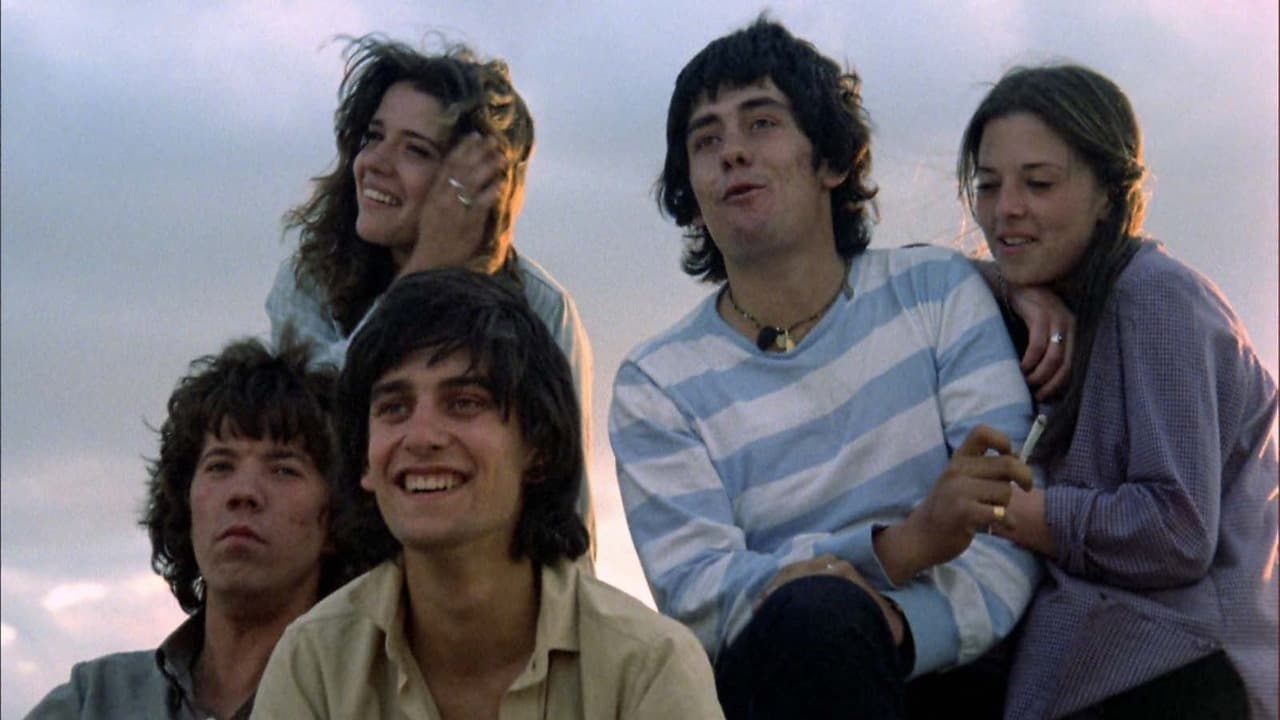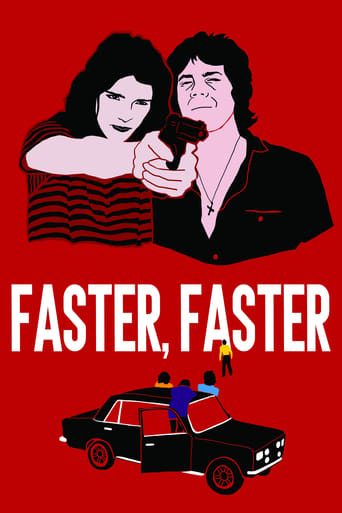UnowPriceless
hyped garbage
Nessieldwi
Very interesting film. Was caught on the premise when seeing the trailer but unsure as to what the outcome would be for the showing. As it turns out, it was a very good film.
FuzzyTagz
If the ambition is to provide two hours of instantly forgettable, popcorn-munching escapism, it succeeds.
Connianatu
How wonderful it is to see this fine actress carry a film and carry it so beautifully.
zimmyfan66
Much like the renegade lovers of Terrence Malick's classic independent debut "Badlands," the renegade lovers of Carlos Saura's "Deprisa, Deprisa" are hollowed-out creatures with jittery instincts and a desperate need to escape, more than anything, boredom and the inevitably painful disillusionment of young adulthood. However, Malick imbues his film with a nostalgia of lost youth that gives way, almost hypnotically (Sissy Spacek's Holly seems to be in a trance the entire film), to the empty-headed, unaffected, face-life-head-on bravado of the dissatisfied and delusional Kit. Unlike Kit and Holly, Pablo and Angela of Saura's film aren't hypnotized or going through the motions. Their crime spree is not an existential courtship either. Theirs is a materialistic crusade against the press of time and the demands of society. They will make their living on their own terms, and they're not in the least bit afraid to don ski-masks and cheap fake mustaches, to carry pistols and sawn-off shotguns, and they're not afraid to make a run for it. For them, it's a carnival ride, whereas with Kit and Holly, it was a spiritual journey through the hostility of the deserted badlands. Saura is not so romantic. He sees his youths as ticking time bombs with their heads far above the clouds. The enthusiasm with which they carry out their makeshift robberies is indicative of a childish imitation of such romantic outlaws as Bonnie and Clyde. They are in over their heads, playing catch up with their fantasies. What Pablo and Angela fail to realize is that their fantasies are much to fast to catch. Hence the title. Saura portrays this with such distinction, with such control and attention to character that we cannot help but be caught up with Pablo and Angela despite our unease in watching their recklessness. This is the mark of a truly powerful filmmaker, one who can bring us along the journey and make us feel the feelings of the characters in the process. When Angela walks off into the purple evening sky during the last shot of the film, we know that she knows her life has lost its luster in the furious pursuit of some wild dream. We know that the future only holds a lack of the past for her and that any speed she maintained with her lover is coming to a screeching, unforgiving halt.
kitie7
A good look at the delinquency in Spain of the 80's, good photography, great soundtrack.Pablo, Angela, El Meca and Sebas, four marginalized teenagers from Madrid are forced to live a life of crime in order to survive and escape the poverty they live in. The movie is quite entertaining, the crime scenes are very realistic, the soundtrack fits just perfect and the message is clear and powerful. Crime is created by poverty and poverty is created by luxury, something we are all responsible of. A great political statement, then and now.
Prof_Lostiswitz
This movie makes beautiful use of Flamenco music, and does it better than any I've seen. Carlos Saura obviously cares deeply about the medium, as he also made a movie called Flamenco (although it's just a concert piece).The story is very basic; it deals with the adventures of young street-criminals in Madrid who graduate from car-theft to bank-robbery. What's interesting is the way Saura makes us care about these "hijos de nadie", who are kind and decent people 50% of the time, and feel they have no future in regular society. But the movie never sentimentalizes them - they do exactly what you'd expect such people to do.Dialogue is kept to a minimum; a lot of the communication is via the graceful gestures the Spanish are so good at. This allows extra time for the soundtrack, and it really gets you into the spirit of the film, which is really more like dance than acting.Flamenco originated among the dispossessed, among beggars and gypsies condemned to live in waste places and junkyards on the edge of town, and the scenes of the barren housing-projects on the fringes of Madrid really bring this feeling to life.
Deprisa, Deprisa conveys a better understanding of the spirit of Flamenco than more elegant movies dedicated to the subject. (And Carlos Saura is a genius).
kd4kn
A good directed film, based on juvenile delinquency, with a marvelous photography.Not the best of this genre but its well done and has a great sound track that explains this world so purely, with the masters of rumba (Los Chunguitos).The director, influenced by other films like `Perros Callejeros` used real kids from the streets to give the film a more realistic touch.The main actor (Jose Antonio Valdelmoro) Pablo in the film,died two years later the same way as told in the film.Pablo and Angela are in love,but also they are poor and together with their friends El Meca and Sebas they are forced to live a life of crime to survive and escape the suburbs of Madrid.The four of them steal cars and plan armed robbery`s to earn money,and also as part of the street life they do drugs.These kids are known as good people among there neighbourhood,but can also be violent and very dangerous.Will they live to see their dreams come true and make it out of this world?Watch this movie and find out!Very entertaining.

